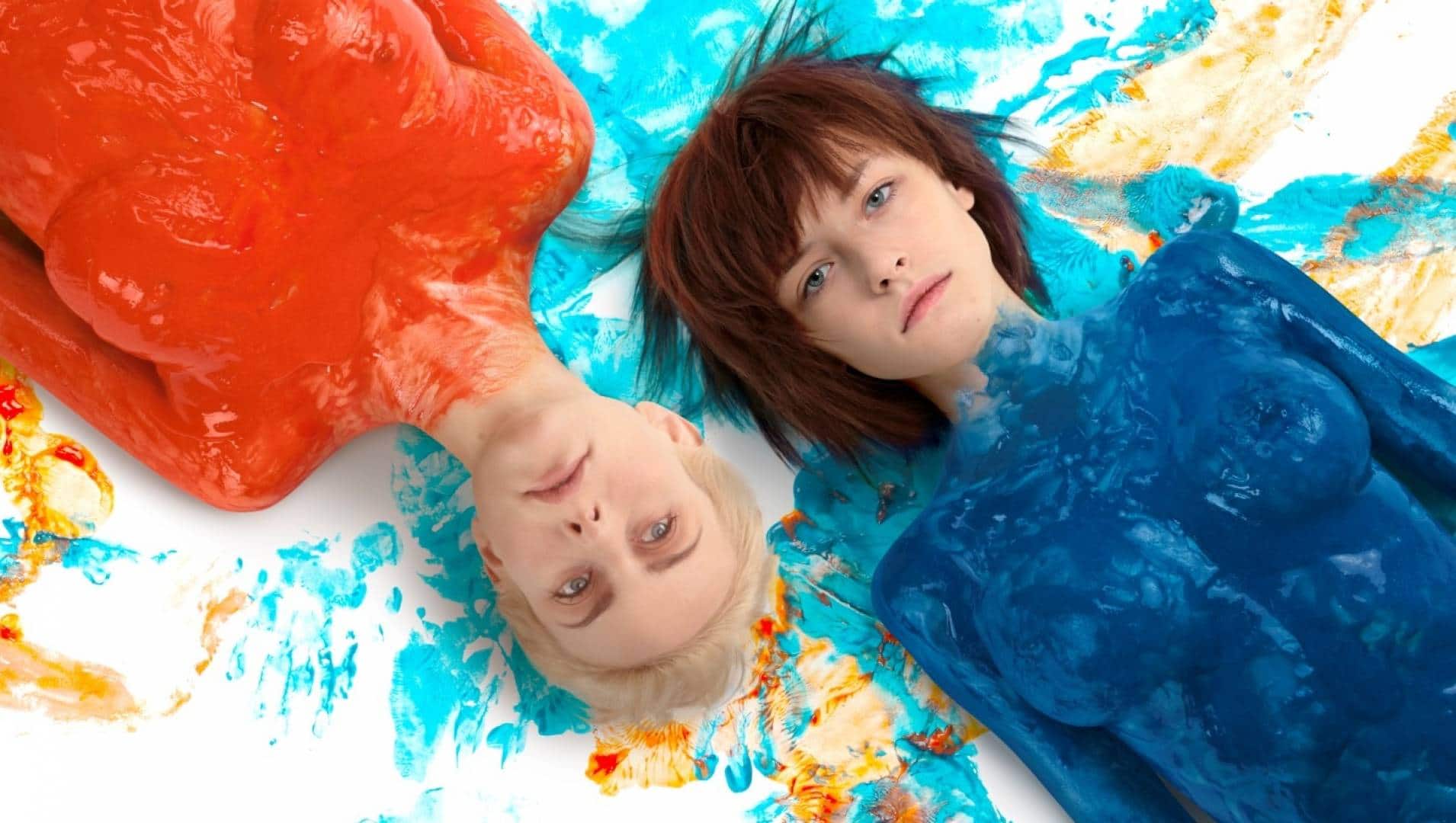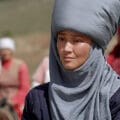The 2014 film Звезда (The Star) is a satirical anti-fairytale written and directed by the esteemed Armenian-Russian film and TV producer, Anna Melikyan. While Melikyan’s art house work has won numerous awards and been given positive critical reviews, they have not been box office hits. Such is the case with The Star, which has earned a worldwide gross to date of only 92,500 dollars, but has only positive reviews from the 15 different Russian and American magazines and newspapers tracked by KinoPoisk. It premiered in Russia on 4 December, 2014, and was produced by Mars Media Entertainment and Magnum Production Company.
The Star tells the story of two women — one with great wealth, and the other in great poverty — both living in contemporary Moscow. Throughout the film, both women contend with socially constructed concepts of feminine beauty, the precariousness of life and healthcare in the 21st century, and the value of art in the context of a capitalist society. In this article, you can gain an understanding of the plot, themes, and cultural context of The Star, as well as the experience of an intermediate to advanced Russian speaker watching it.
The film is available for free with English subtitles here on vimeo.
View the trailer below:
Synopsis of The Star
The Star opens with Masha, an untalented, yet vibrant aspiring young actress with an exuberance for life and burning aspiration to become a movie star. After moving to Moscow without getting a residency card (which is needed to gain legal employment and get access to social services), Masha is met with a series of failed auditions. In desperate need of money, she auditions for the role of a dancer/singer in a club, but her lack of talent lands her the job of a mermaid who wades around a tank instead. She takes the job, despite being unable to swim, and nearly drowns in the tank until Kostya swiftly comes to her rescue.
Kostya is the son of a cold, serious oligarch, but has chosen to reject the lavish life of his wealthy father by working in the club, skipping school, and driving a beat-up motorcycle. He tells Masha he is a thief. As Kostya begins to fall for Masha’s dazzling energy and burning hunger for life, they devise a plan to steal the money Masha needs for plastic surgery, which she beleives is an essential step on her journey to become a famous actress. Masha believes that even without talent, one can still rise to fame through conforming to the beauty standards of modern society.
Meanwhile, Rita, the other major character in the film, is a cold-hearted, prestige-obsessed woman who is the soon-to-be stepmother of Kostya. In order to secure her position in high society, Rita plans marry an oligarch and attract the public eye by opening an art gallery or starting a charity foundation.
Rita visits a doctor for a pregnancy test, which comes back negative. However, the bloodwork does uncover an immune disorder that will cause her untimely death. Distraught Rita, seeing her dreams dashed, returns home to Sergey, and confesses her hatred for him. He turns her out and cancels her credit cards. Rita then encounters Kostya who (perhaps out of hatred for his father) leads her to the club he and Masha work at for a drink. Rita proceeds to get drunk and make a scene.
The next day, Rita wakes up in Masha’s apartment. Masha invites Rita to move in with her, so that they can split the rent and she can get her plastic surgery. After initially refusing, Rita later shows up with nowhere else to go. She pays her side of the rent by handing Masha her 40,000 ruble handbag, the first sacrifice she has made in the film or even perhaps in her life. Rita’s icy exterior finally begins to melt, as she and Masha warm up to each other.
In their newfound friendship, they make modern art together, covering their surgically altered bodies in paint and laying on canvases. Rita presents these pieces to a curator she had met while rich and making plans for her previous life. The curator accepts the pieces, but insists that in order for the public to be attracted to the paintings, Rita must be dead. He refuses to give her any money until she can present a doctor’s note confirming her death.
Later, Masha is nervous for a one-on-one casting session with the director of an upcoming film. Rita gives Masha her expensive fur coat to wear to the casting session. There, the director falls in love with Masha’s spunk, but frowns when he sees her breast implants, which he initially deems too big.
Still lacking the money to pay for Masha’s surgery, Kostya attempts to actually rob a store. He gets caught by the police, but escapes when Rita and Masha come to his rescue. After this failed robbery, the group heads to a local bar where they drink, laugh, and dance with other rowdy, working class strangers. Interrupting their joyful tomfoolery, Sergey enters the bar, questions Rita about his son’s happiness, and asks her to marry him before his heart fails on him. Rita refuses.
Rita decides to donate organs to help pay for Masha’s surgery. She visits the clinic where she is told that by some strange mistake her medical information was swapped with someone else’s. Rather than being diagnosed with a rare life-threatening immune disorder, Rita is, in actuality, pregnant. Stunned by the shocking news, Rita heads straight to Sergey’s mansion where Kostya took Masha to ask for the money for her surgery. Overjoyed by Sergey’s approval, Masha heads straight to the clinic.
Rita then arrives at Sergey’s mansion, where she learns that Kostya once took her medical insurance card and gave it to Masha so she could get her first plastic surgery operation on her ears. Rita breaks down into tears, realizing that the blood work that indicated an immune disorder was not hers, but Masha’s. Back at the clinic, the doctor informs Masha of her immune disorder. Masha requests that they continue with her plastic surgery.
In the final minutes of the film, we are shown a scene that appears to be opening night at the art gallery. Surrounded by the modern art pieces she made with Masha, pregnant Rita glows with pride while she gazes at the fluttering crowd.
Viewing The Star at an Intermediate Language Level
Depending on what you hope to take away from watching it, viewing The Star may be considered difficult even at an intermediate high level. If you simply want to understand the plot, you should have little difficulty doing so as long as you’ve read a synopsis ahead of time. The actress of the main character, Masha, also speaks very clearly and simply for most of the film, making her pretty easy to understand. Lastly, there is a lot of conversational language and cognates used in the film, such as уже, музей, думать, сейчас, талант, здравствуйте, плохо, искусство, ждать, операция, красота, актриса, как тебя зовут, час, and плавать.
However, there are some very important scenes using advanced language related to philosophy and medical terms. Sergey and Kostya at times ten to mumble and slur more than Masha and Rita, making them harder to understand. However, the general messages of these scenes can be understood through contextual clues. If you hope to understand the nuances better, you might watch the movie twice, once to take notes of terms and another to hear the terms again.
Before viewing the film the first time, I would also recommend learning a few essential vocabulary words for the plot: звезда (star), творительный фонд (creative foundation i.e. charity), лекарства (medication), снимать (to record), русалка (mermaid), украть/воровать (to steal), вор (thief), фишка (gimmick), пошутить (to joke), регистрация (registration: propiska – the documentation that Masha lacks), жениться (to marry — if the subject is a woman), ненавидеть (to hate), успех (success), канализация (sewage), анализ (test sample), говно (poop; this is slang word and considered offensive), and кровь (blood).
Analysis of The Star
The Star won four awards, mostly for its acting. The Special Jury Prize for Brilliant Acting (V Odessa International Film Festival) was awarded to the actress playing Masha and Best Female Role and Best Female Role (X International Film Festival “Eurasia” in Almaty) was given to the actress playing Rita. The film also won the Audience Grand Prix at the IV Edge of the World International Film Festival in Sakhalin and the Star Audience Best Russian Film at the XII International Film Festival “Pacific Meridians” in Vladivostok.
The Star earned a rating of 8.9/10 on Russian Film Hub, a 7.2/10 on KinoPoisk, and a 6.9/10 on IMDb. It has a 45% rating on Rotten Tomatoes.
With the exception of Russian Film Hub and KinoPoisk, I found these ratings to be a bit too modest for this extraordinarily well written and shot satirical anti-fairytale. The film interweaves intense themes — such as the superficiality of high society, the power of illusion, the death of illusion, and death itself — with incredible satirical humor. There is also a significant amount of symbolism pictured throughout the film even in the tiniest details, such as Kostya’s cockroach scuttling across Rita’s pristine white table cloth during her interview with the press: a reference to Rita’s selfish motives for pursuing her seemingly altruistic goals. Later in the scene, Kostya adopts the role of the cockroach himself, directly exposing Rita’s ulterior motives to the press. In The Star, some symbolism is even tied to Anna Melikyan’s earlier film, Mermaid (2007): a comedy-drama centered around the life of a young introverted girl who believes she has the power to make wishes come true. One could say that this type of optimism closely resembles the vibrant ambition pictured in Masha.
The film also comments subtly but well on a pressing problem in Russia: the role of migrant workers. They have a nearly continuous presence in The Star, living their lives peacefully and sometimes happily in the background of many scenes. This is, of course, in direct contradiction of the stereotype perpetuated of them by many conservative and nationalist members of Russian society.
Masha herself is a migrant and faces a challenge faced by many internal migrants to Moscow – her lack of propiska. While this system was implemented essentially for the same reason that one’s driver’s license should be connected to one’s actual address in the US, the propiska system is much broader in Russia – and tied to attaining many services that are, in fact, guaranteed under the Russian constitution – such as obtaining medical care and legal employment.
There are two scenes where Masha’s complex connection to the migrant workers is brought to light. In one, Masha makes direct and prolonged eye contact with a construction worker. Although it is hard to read the expression on either of their faces, the interaction symbolizes some connection between the two. In the other scene, Masha returns from her first failed audition pictured in the film, crying. The camera pans from Masha’s tear filled eyes to a group of laughing construction workers, and then back to Masha whose face is then filled with anger.
To me, the migrant workers represent everything that Masha fears: they are unrecognized by the public, considered to be on the lowest tier in the societal ladder. Yet they are portrayed either as neutral observers or simple happy folk, not weighed down by the pressure Masha exerts on herself to achieve stardom or the fear she experiences concerning potential run-ins with police. Perhaps Masha’s expression of anger stems from a frustration with these truths. Additionally, the neutral and sometimes positive portrayal of migrant workers in The Star is in and of itself a powerful commentary on an aspect of Russian society, as they are stereotypically viewed as quite the opposite. Both of these themes would go unnoticed to your typical American viewer who most likely has little knowledge of Russian culture and history.
I hope, after reading this article, you feel inspired to watch the darkest aspects of modern society come to light through The Star and improve your Russian skills along the way.











